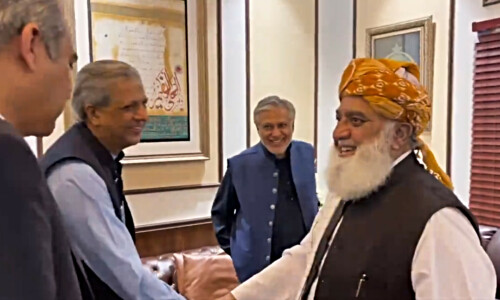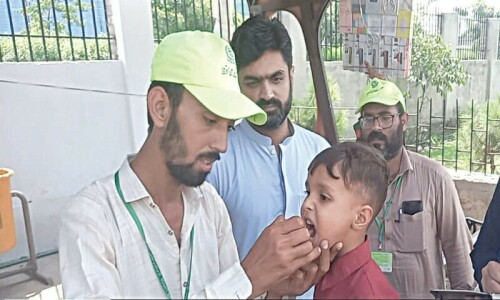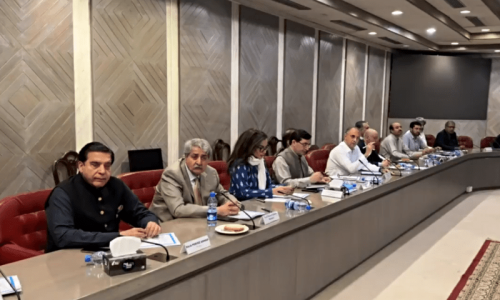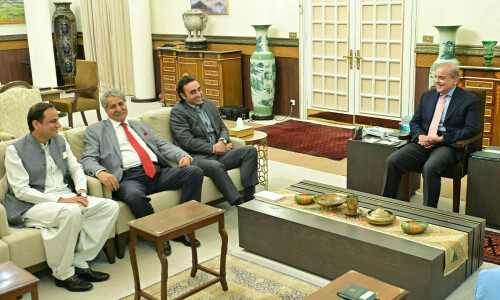KABUL: US-led coalition forces detained Noor Ahmad Agha’s father in a night-time raid in southern Afghanistan, then took him to a secretive prison on the faraway main US base, a place few outsiders have seen.
That was 14 months ago. On Monday, Agha’s hands clutched a black phone while his reddened eyes were transfixed on a small TV. It was the first time he had seen or heard from his father since the raid, thanks to a new video conferencing system agreed to by the US military and the International Committee of the Red Cross, or ICRC.
For some held without charge, such chats are the first time in six years they have spoken with or seen family members.
The project represents a small victory for the Red Cross, but the organisation is still pushing the US to also allow face-to-face visits with family for the prisoners at Bagram Air Base.
Agha’s father, Haji Abdul Nafe, is one of 600 to 650 prisoners held at the Bagram detention facility. It is part of a global network of overseas prisons the US set up to detain thousands of terrorism suspects, many of them held beyond the reach of established law.
The International Justice Network, a prisoners’ rights group, has denounced the administration of US President George Bush for refusing to give the group’s lawyers access to Bagram’s prisoners.
“Many of our clients were apprehended, without any warrant or cause for arrest,” Barbara Olshanksy, IJN’s legal director, said.
“Their houses were searched, much of their property was destroyed, and in the end no weapons or contraband was found. Yet five years later, they are still in prison and there is no incentive to get them processed out of the system.”
The video chats, which began Jan 6 and are held at the main ICRC building in Kabul, have drawn relatives from throughout the region.
“The system is the first of its kind,” said Reto Stocker, the head of ICRC in Afghanistan. “It was set up ... to reassure detainees and their families by allowing them to see and speak to one another.”
About 60 families from around Afghanistan have used the video system so far. Rauchenstein said that the ICRC was negotiating with US authorities to allow face-to-face visits.—AP















































Dear visitor, the comments section is undergoing an overhaul and will return soon.